
5 minute read
Soil biology and weed management
Soil biology and integrated weed management
Soil biology
Advertisement
3 BACTERIA and mold growing on agar plates from soil samples.
BY DIMI KYRIAKOU AND CARL LARSEN RMCG
The Soil Wealth and Integrated Crop Protection (ICP) project works with growers nationally to put soil management and plant health research into practice.
As the year finally draws to a close, This approach allowed growers this column looks back on the project’s focus topics for 2020 — soil biology and integrated weed management — and highlights a collection of to access a range of useful articles and practical resources to better understand soil useful resources developed biology and IWM, and for growers during the year. how they could be The year 2020 was undoubtedly challenging, but for the vegetable and potato growers of Collection of useful resources developed forgrowers applied on-farm to maximise productivity and profitability. Australia it was also a This article outlines three time to focus on the benefits of the top soil biology and of soil biology and integrated IWM resources produced as weed management (IWM) in their part of the Soil Wealth ICP project in production systems. 2020. Stay tuned for the announcement This year, the Soil Wealth ICP project put soil biology and IWM research of the project’s focus topics for 2021 in the coming weeks. into action to benefit the Australian vegetable and potato industry.
1 Cover crops and soil biology in vegetable soils
As mentioned in the Spring 2020 edition of WA Grower, a recent webinar recording from the Soil Wealth ICP team delved into the impact of cover crops on soil biology using DNA sequencing technology. This technology provides information on soil bacteria, fungi and eukaryote communities to see what changes occur in vegetable soils following cover crops. Dr Kelvin Montagu from the Soil Wealth ICP team and microbial ecologist Dr Shane Powell from the University of Tasmania also discussed the diversity of biological communities in vegetable soils and how cover crops and biofumigants impact soil microbial communities.
Watch the webinar recording here: soilwealth.com.au/
resources/webinar-recordings/ cover-crops-and-soil-biologyin-vegetable-soils
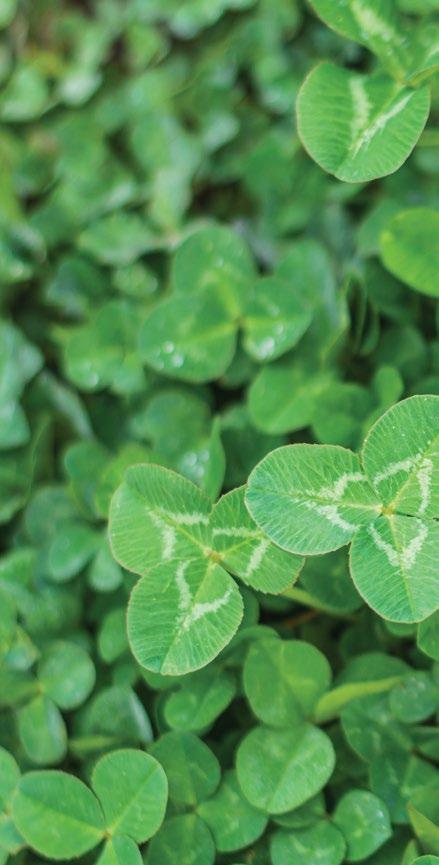
2 An introduction to soil biology
Soil biology is a complex, dynamic and broad field. This 30-minute podcast introduced growers to the concept of why biology is important to soil fertility and maximising crop production, as well as the complexities, risks and potential of biological crop products. The podcast aimed to provide growers with a better understanding of the role of soil biology in vegetable production and share insights from a grower, a manufacturer and a scientist with experience in soil biology.

Listen to the podcast here:
soilwealth.com.au/resources/ podcasts/soil-biology-andbiological-products-an-introductionpodcast-30-minute-listen
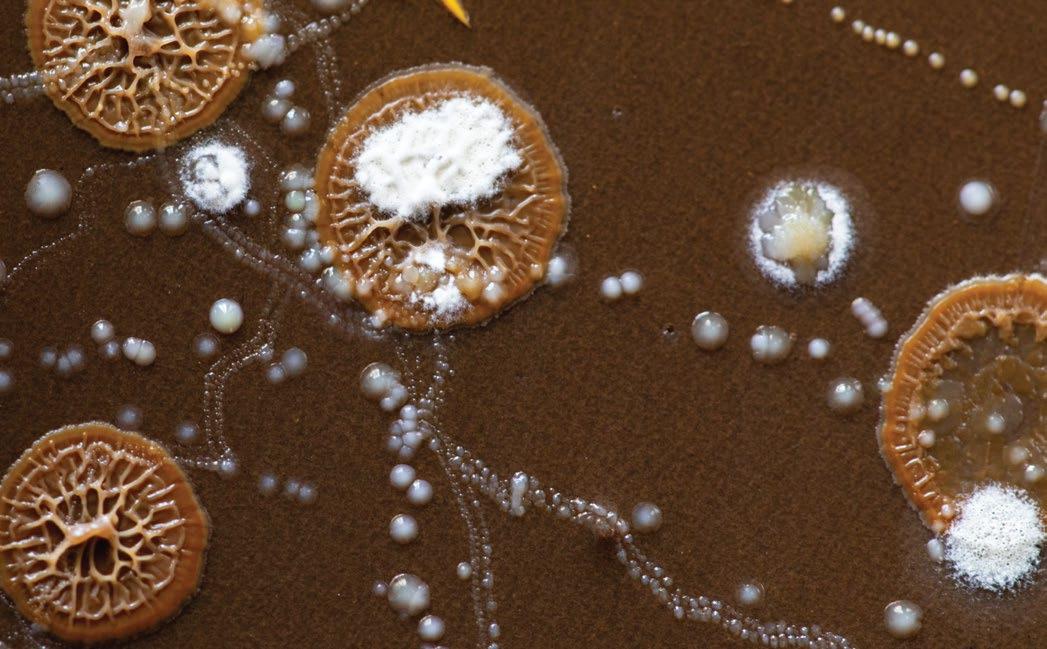
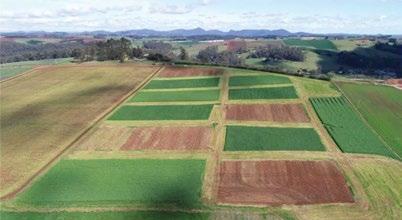

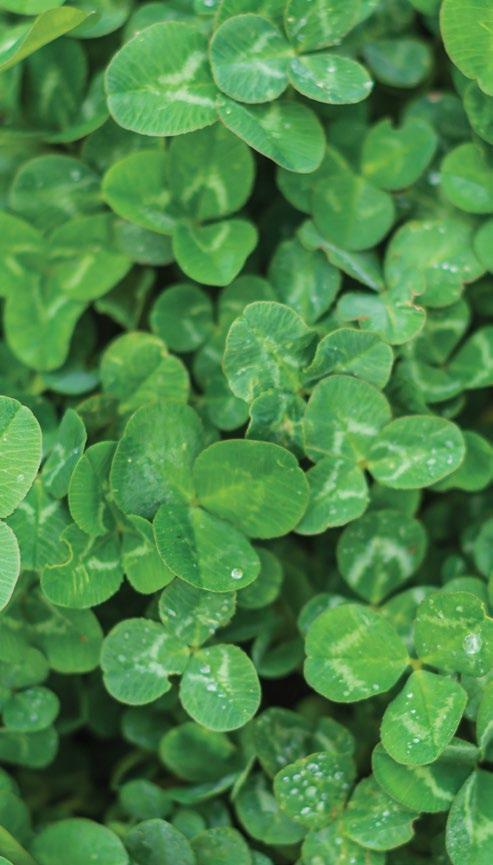
3 Biological Products Database
The Soil Wealth ICP team continues to receive great feedback on the Biological Products Database, a popular tool to help growers navigate the array of ‘biological’ products currently available to their farming business. Biological products, also known as biologicals, are defined as those that are derived from living organisms such as plants, animals, microorganisms and fungi. This includes products used as soil biology stimulants as well as those to improve nutrient availability. The database is available in two formats for ease of use: • Biological products sorted by trade name • Biological products sorted by primary use and trade name. As the database is a work in progress, it is continually updated to include relevant information on the range of biological products available to growers. If you know of any products or trial information that should be included in the database, or details that are inaccurate or incomplete, please use the supplied Excel spreadsheet on the Soil Wealth ICP website and send your suggestions back to the team.

Access the database here:
soilwealth.com. au/resources/ global-scanand-reviews/ biologicalproducts-database

1 IWM using cover crops and strip-till
In this short podcast, Soil Wealth ICP agronomists, Dr Pieter Van Nieuwenhuyse and Marc Hinderager, discussed the outcomes from a case study carried out on a pumpkin farm in Bathurst, New South Wales. The trial highlighted how interrow ground cover can assist in suppressing weeds and how a more integrated approach to weed management, using cover crops and strip-till, might help to reduce the use of herbicides.
Listen to the podcast here:
soilwealth.com.au/resources/ podcasts/integrated-weedmanagement-using-covercrops-and-striptill-6-minutes
Read a case study on the trial here: soilwealth.com.
au/resources/case-studies/ iwm-on-a-bathurst-pumpkinfarm-advantages-drawbacks-ofground-cover-use-tillage-andresidual-herbicides 2 Using remote sensing for vegetable weed control
The integration of remote sensing in daily farm management is a hot topic driven by the evolving range of applications through the Internet of Things (IoT). According to British start-up company Hummingbird Technologies, remote sensing technologies can be used to help vegetable growers make the right decisions for weed control and harvest prediction.
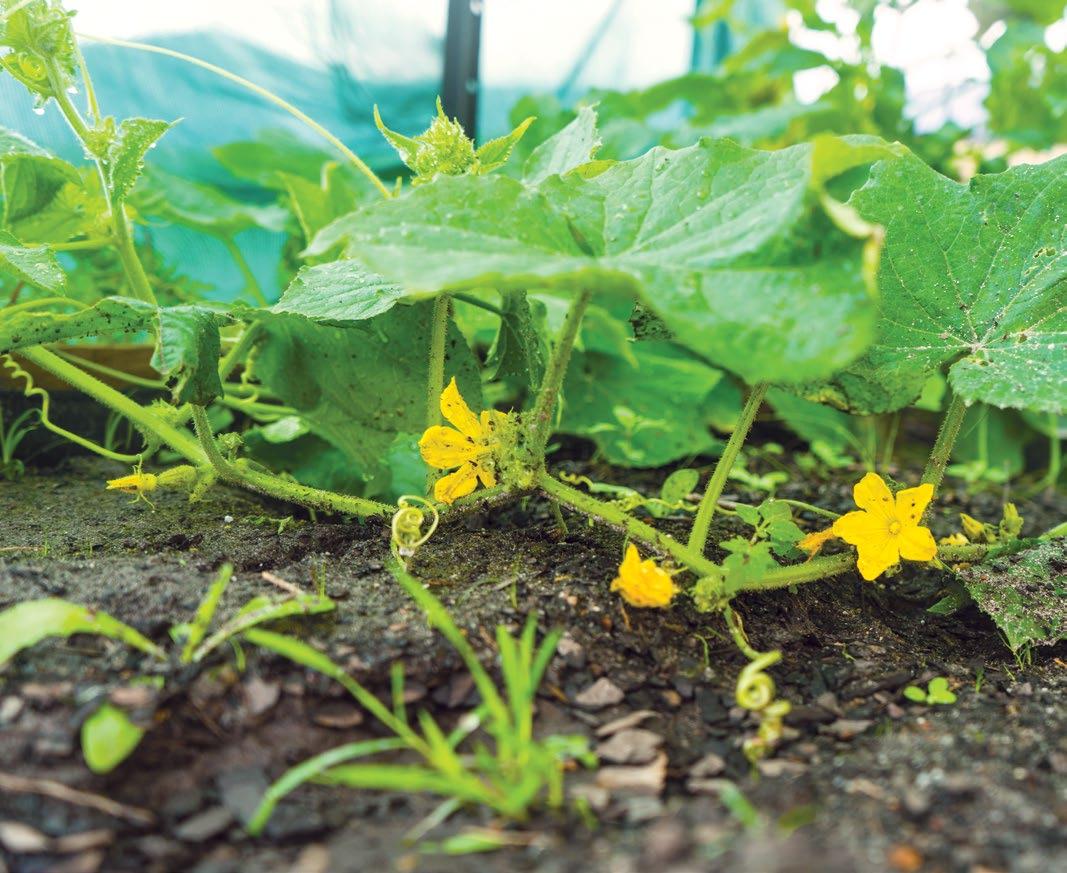
Read the article here: soilwealth.com.au/resources/articles-and-
publications/use-of-remote-sensing-technology-in-vegetable-weedcontrol-and-yield-prediction
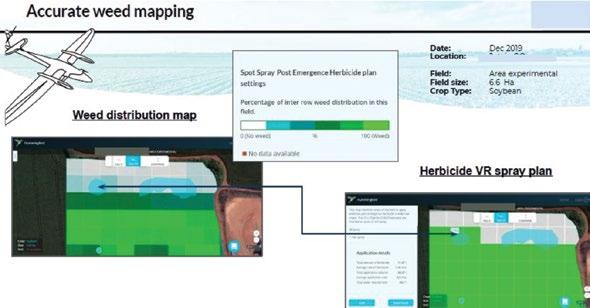
3 Technology for controlling weeds in vegetable production
Most new technology for controlling weeds will be a positive step forward for soil health and the environment, and will play an important role in our fight against herbicide resistant weeds. Watch this interactive session to hear from leading industry experts on some of the most interesting and practical advances in weed management. This webinar covered non-selective fallow paddock weed control, as well as selective in-crop weed control, and delivery technology.
Watch the webinar recording here: soilwealth.com.au/
resources/webinar-recordings/ technology-for-controlling-
weeds-in-vegetable-production.
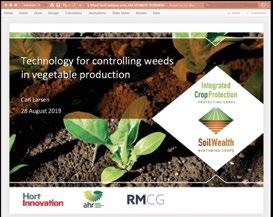
This project has been funded by Hort Innovation using the vegetable research and development levy and funds from the Australian Government. For more information on the fund and strategic levy investment visit horticulture.com.au
MORE INFORMATION
For more information, please contact project leaders Dr Gordon Rogers on (02) 8627 1040 or gordon@ahr.com.au and Dr Anne-Maree Boland on (03) 9882 2670 or anne-mareeb@rmcg.com.au.











